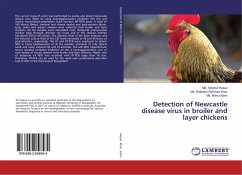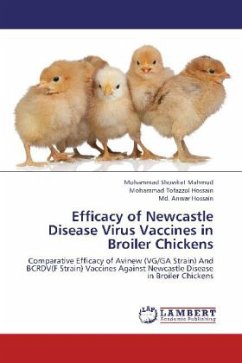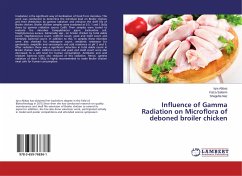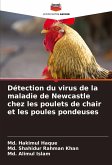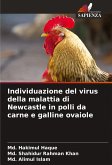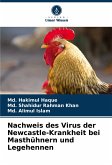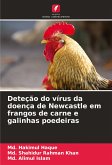The current research work was performed to isolate and detect Newcastle disease virus (NDV) by using haemagglutination inhibition (HI) test and reverse transcription-polymerase chain reaction (RT-PCR) assay. A total of 160 clinical (blood, tracheal and cloacal swabs) and post-mortem (brain, lung, colon and spleen) samples were collected from broiler and layer chickens. All the samples were inoculated onto 10-day-old embryonated chicken eggs through allantoic sac route and in the chicken embryo fibroblasts (CEFs) cell culture. The allantoic fluid of the dead embryos and the infected culture fluid of the CEF were harvested at 48 and 96 hours of post-infection, respectively. The HI and RT-PCR were employed to detect NDV in tissue homogenates of all the samples. Inoculum of only cloacal swab and colon showed HA and HI activities. The anti-NDV hyperimmune serum revealed complete inhibition of the 4 haemagglutination unit of each isolate of viruses isolated from broiler and layer chickens. Higher rate of detection of NDV was recorded with RT-PCR assay than HI test. Therefore, RT-PCR can be used for the rapid and confirmatory detection tool of NDV at the field level of Bangladesh.

